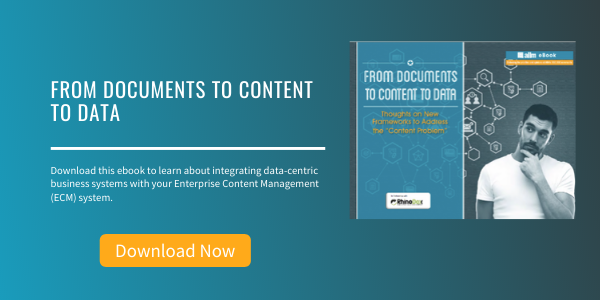
Succeeding at the Game of Work Depends on Excelling at Data Management
Companies are dealing with more data than ever before. In a complex IT environment, the challenge of maximizing the value of that data can be daunting. Everyone in an organization wants to excel, but many do not have holistic approaches for measuring the ongoing status and enhancement of their business data. Not doing so can result in lower overall company performance, incomplete or incorrect data to drive decisions, and undue stress, driving lower overall employee satisfaction.
Consider an especially tense series of conversations witnessed by management at a manufacturing company. The product manager was frustrated by the perceived lack of improvement in the quality of the descriptions of product data and the lack of governance control in the ERP. The IT manager and data governance analyst were putting in the hours to improve the data but couldn’t tell the product manager precisely what was done and what was still left to complete. The IT and data management teams didn't have the tools to measure the complete view of the data or transparently share the respective quality levels across categories. Additionally, there was no visibility of upcoming data quality projects or prioritization.
Both sides had similar goals – improving the data and enabling success. However, without proper governance or a way to measure data performance, the departments found themselves at odds. This led to continued friction and the business taking on more risk than necessary.
Succeeding at the Game of Work
Chuck Coonradt, the author of The Game of Work, says, “Every day, everybody wants to know if they are winning or losing.”

Win #1: Better Business Performance
Success in the marketplace for all businesses, whether B2B or B2C, requires understanding your customers, understanding how they want to interact with your company, and delivering the information they want, when they want it. Business is done in increasingly digital ways, but most companies need an omnichannel approach to gain new customers and retain existing ones effectively.
Key questions about business performance:
- How hard is it for your customers to make decisions to work with you and to buy your products? What information are they lacking?
- How are you measuring the effectiveness of the various digital and physical touchpoints?
- What is the quality and value of your data relative to your competitors and, most importantly, from your customers’ point of view?
Win #2: Better Decision Making
With all the voluminous data available, plentiful and varied sources, and even access to real-time data, you would think it’s easier than ever to be successful. But the truth is that many decision-makers don’t have timely access to all of the information they require. Today, success requires taking an activist role against data hoarding and individualized control and aggressively working as a team to integrate data and eliminate silos. Winning companies build trust in their data, reduce the time to access the data, and enable decision-makers to do what they do best – learn and innovate.
Key questions about decision making:
- Are you aware of the effort and time it takes to collect and integrate data for your teams to make decisions?
- What visibility do you have into the process and approval decision points before sharing new data with customers?
- How much time is actually spent on analytics and innovation versus collecting and verifying disparate data?
Win #3: Better Employee Satisfaction
Companies across many industries are struggling to retain workers. The Great Resignation saw millions of employees leave their jobs around the world. Companies that don’t have engaged and satisfied employees are less likely to win in the marketplace. In a recent study by OnePoll of 1,500 workers in the UK and another 1,500 in the US, 61% of US respondents at 46% of UK respondents would consider leaving if a new employer provided better apps or software systems for employees. Winning companies are aware of their employees’ satisfaction levels and have action plans for continued support to enable employee success.
Key questions about employee satisfaction:
- What apps and software create the most dissatisfaction among your employees?
- What data is being reworked that doesn't meet your customers' standards, thereby adding to the workload and stress of your employees?
- Do you measure the importance and rating of enterprise data and IT applications in your employee satisfaction surveys?
Success for Employees = Ongoing Success for the Enterprise
Employees want to work for successful companies that enable them to succeed in their own roles and careers. Technology, such as master data management solutions, can play a big part in helping companies build a data foundation for their business, so processes are visible, data management activities are prioritized, and employees are empowered to be successful.
About Brian Cluster
Brian Cluster is Stibo Systems’ Industry Strategy Director for the consumer packaged goods and retail industries. He has a 20-year track record of collaborating on strategy, delivering analytics and developing business plans and digital transformation. At Stibo Systems, Brian is putting his varied industry expertise to good use, providing direction and strategy for field teams and helping to drive customer value for master data management solutions.



